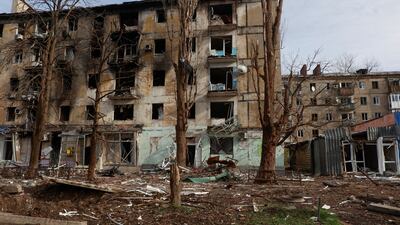The International Monetary Fund on Friday announced a staff-level agreement with Ukraine on updated economic and financial policies, paving the way for authorities to draw $900 million from its $15.6 billion lending programme once approved by the board.
The lender said its executive board was expected to consider the agreement in coming weeks.
The Washington-based lender had approved funding worth $890 million in June after completing the first review of the extended arrangement under the Extended Fund Facility for Ukraine.
In March, Ukraine secured $15.6 billion from the IMF as part of a four-year comprehensive loan programme, which is part of the $122 billion total support package for the country.
“Ukraine met all quantitative performance criteria set for the end of June, and indicative targets for the end of September, as well as most of the structural benchmarks set under the IMF’s Extended Fund Facility programme, reflecting the authorities’ continuing commitment to the overall reform agenda,” Gavin Gray, the IMF official who led discussions with Ukrainian officials in Poland from November 6 to 10, said.
“Programme performance has been broadly on track despite the extremely challenging backdrop.”
Ukraine’s economy shrank by about 29 per cent last year and the fluidity of the conflict means an uncertain economic outlook.
Damage to the country’s infrastructure was estimated at $138 billion as of December 2022, equal to 70 per cent of its gross domestic product in 2021, according to the Kyiv School of Economics.
In February, Moody’s Investors Service downgraded Ukraine’s rating deeper into junk, or non-investment grade territory, as a result of the mounting pressure on its finances.
In a June report, Fitch Ratings, which also maintains a non-investment-grade rating on Ukraine, projected that the country’s economy would grow by 3.5 per cent in 2023 and 4 per cent in 2024.
The IMF said the Ukrainian economy continued to show “remarkable resilience” despite Russia’s invasion in February 2022, and said recent economic developments pointed to a stronger-than-expected economic recovery in 2023 and continued growth in 2024, as well as substantial disinflation.
IMF staff upgraded their forecast for real GDP growth in 2023 to 4.5 per cent from the previous range of 1 per cent to 3 per cent, but expected growth to soften to a range of 3 per cent to 4 per cent in 2024, Mr Gray said.
However, the outlook remains extremely uncertain as exceptionally high war-related uncertainty persists, he added.
“The war in Ukraine continues to have a devastating impact on the population and the economy as attacks on critical infrastructure and air strikes continue countrywide,” he said.
“Furthermore, Russia’s termination of the Black Sea Grain Initiative and destruction of ports have impeded Ukraine’s exports. Despite this, macroeconomic and financial stability have been maintained, thanks to prudent policymaking as well as steady and timely external support.”
But Ukraine’s fiscal deficit remained very high, reflecting the economic and social cost of the war, which left it with large, continuing financing needs, according to Mr Gray.
To help meet these spending needs, key priorities include enacting a law to fully restore tax audits and launching the National Revenue Strategy in December, the IMF said.
The authorities need to stand ready to take additional revenue measures and should continue their efforts to mobilise financing from the domestic bond market, the fund recommended.
Timely disbursement of committed external support will be critical for budget financing and macroeconomic stability, the fund said.
Ukraine-Russia conflict – in pictures
“Steadfast implementation of structural reforms, including in governance, anti-corruption and public investment management, will be crucial in laying the foundations for strong and sustained growth, and support Ukraine on its path to EU accession,” Mr Gray said.
“Efforts to strengthen the governance of state-owned enterprises should continue. In addition, to support anticipated recovery and reconstruction spending, it will be important to ensure mechanisms for managing donor funding are integrated in budget processes.”












